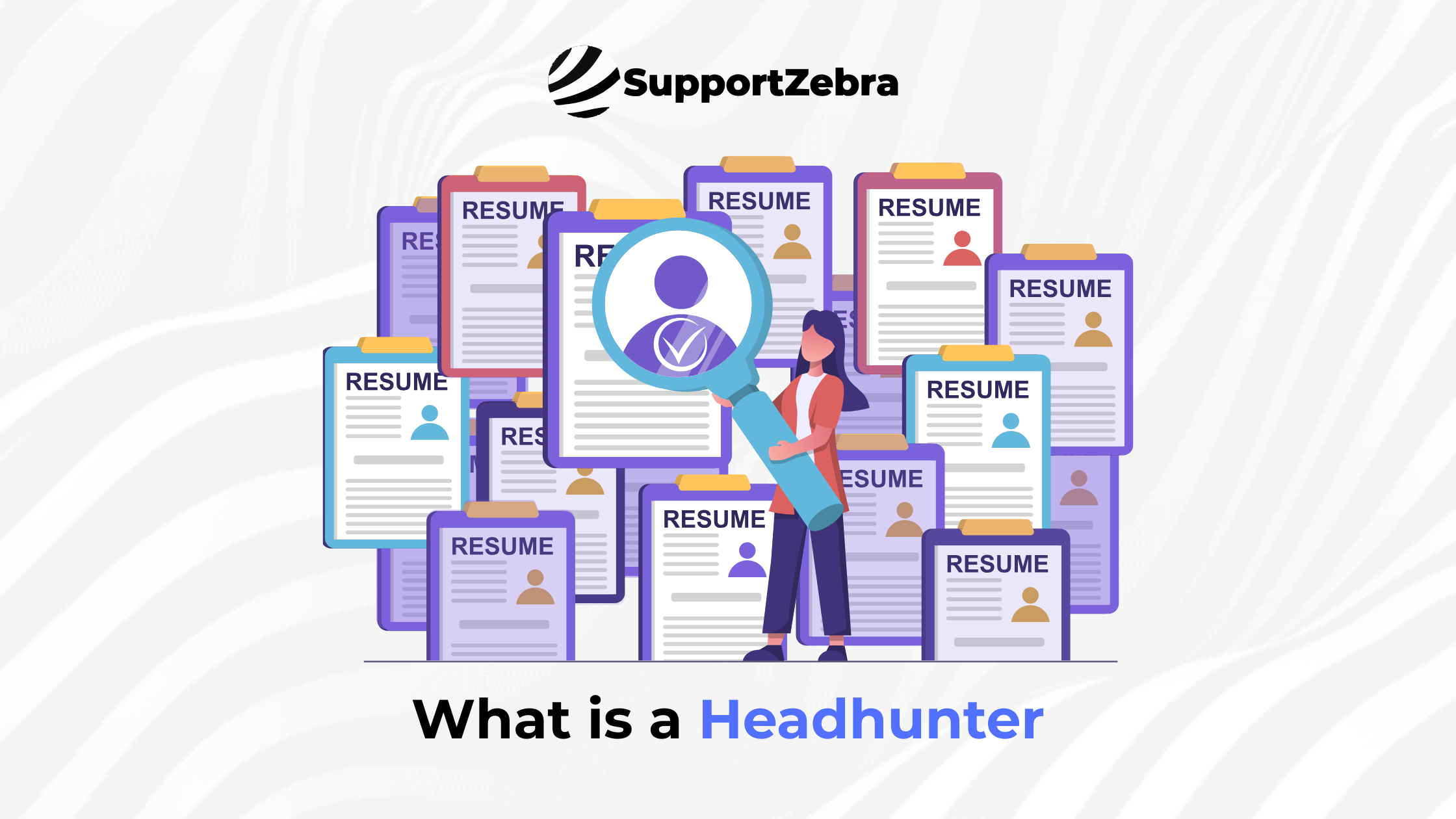What You Need to Know About Headhunters That No One Tells You
Key Takeaways:
- Headhunters specialize in sourcing top talent by leveraging networks, research, and industry expertise.
- They streamline hiring through candidate screening, interview coordination, and negotiation support.
- Job seekers gain access to hidden opportunities, tailored advice, and long-term career connections.
- Companies benefit from faster hiring, access to quality candidates, and reduced recruitment risks.
What exactly is a headhunter, and how do they fit into the complex landscape of the job market? A headhunter, or executive recruiter, specializes in finding top talent for companies seeking to fill critical roles. They play a crucial role in hiring by connecting employers with candidates with the right skills and experience.
This guide covers headhunting methods, benefits for job seekers and employers, and critical details. It provides valuable insights and practical tips for those considering working with a headhunter or wanting to understand their career impact.
What Are the Roles of a Headhunter?
A headhunter’s job goes beyond just pairing resumes with job openings. They leverage their knowledge to evaluate candidates, ensuring they meet your requirements thoroughly.
Here’s how they enhance your hiring process:
- Networking
Headhunters actively cultivate connections with potential candidates, industry experts, and key decision-makers to access top talent.
- Research
They keep up with industry trends, identify major players, and understand the talent market to find candidates that fit your objectives.
- Candidate Evaluation
Through interviews, they assess candidates’ skills, experiences, and cultural compatibility, looking deeper than what’s on a resume.
- Client Collaboration
Frequent meetings with you help them grasp your changing needs and ensure the search meets your expectations.
- Follow-ups
They keep in touch with you and the candidates to guarantee a smooth and effective hiring process.
Headhunters are skilled at discovering outstanding talent by blending industry knowledge, sharp instincts, and a proactive strategy—ensuring every hire contributes to your business’s success.
How Headhunters Operate
A solid plan is essential to attract top talent, and headhunters excel in this area. They focus on finding the perfect match for the candidate and the role. Here’s how they manage the hiring process:
- Client Consultation
Headhunters begin by understanding your needs and discussing the role’s requirements and cultural fit to tailor their search.
- Market Research and Mapping
They conduct thorough market research to identify top talent, exploring competitors and similar industries for potential candidates.
- Talent Sourcing
Headhunters actively seek candidates through their networks and tools, targeting those who may not be actively job hunting.
- Screening and Shortlisting
After identifying candidates, they conduct initial screenings to ensure alignment with your criteria, then create a shortlist for your review.
- Interview Coordination
Headhunters manage the logistics of interviews, providing essential information to both you and the candidates for a smooth process.
- Candidate Feedback and Client Review
Post-interviews, they gather feedback from both parties to address concerns and gauge mutual interest for informed decision-making.
- Negotiations
When ready to proceed, headhunters assist in negotiating salary and benefits to ensure satisfaction for both you and the candidate.
- Job Offer and Placement
Once details are finalized, headhunters provide the official job offer. After the candidate accepts, they assist with transitioning to the new position.
- Follow-Up
Headhunters maintain contact after the candidate starts to ensure a smooth transition, addressing any questions from both the candidate and the employer.
Using a headhunter helps you take a detailed and smart approach to discovering and attracting the talent that will propel your business forward.
Benefits of Working with a Headhunter
Headhunters streamline the job search for candidates and hiring companies by ensuring a perfect match between candidates’ skills and job requirements.
Benefits for Candidates
- Access to Unadvertised Positions
Many high-level jobs are filled through recruitment agencies, giving you an edge by accessing hidden opportunities.
- Career Advice and Insights
Headhunters provide tailored feedback on your resume and interview skills, informed by industry trends and salary standards.
- Assistance with Offer Negotiations
They represent you during negotiations, ensuring you receive a fair salary and benefits.
- Creating Lasting Connections
Building a relationship with a headhunter can lead to future job opportunities as they keep in touch and notify you of relevant openings.
- Tailored Job Recommendations
Headhunters understand your skills and goals, connecting you with positions that align with your qualifications.
Benefits for Companies
- Time and Resource Efficiency
Headhunters streamline hiring by managing candidate searches, initial interviews, and offer negotiations, allowing your company to focus on core operations.
- Access to Top Talent
Headhunters excel at finding high-quality candidates through extensive networks and industry knowledge, ensuring alignment with your company’s culture.
- Market Knowledge
Collaborating with a headhunter can enhance your hiring strategy by providing valuable insights into salary benchmarks, competitor activities, and industry trends.
- Lower Hiring Risks
Many headhunters offer a guarantee period, ensuring a replacement at no extra cost if a placed candidate leaves within a specified timeframe, reducing hiring risks.
- Confidential Hiring
Headhunters can conduct discreet searches, protecting your company’s identity until appropriate.
By working with a headhunter, job seekers and employers can benefit from their expertise, industry connections, and strategic insights, leading to more robust, successful long-term partnerships.
Making the Most of Your Headhunter Experience
Headhunters connect skilled individuals with top companies while maintaining confidentiality. They face challenges like managing multiple clients and adapting to industry trends, which they address through effective communication and a focus on privacy.
As recruitment evolves, AI and machine learning are vital for candidate assessment, emphasizing diversity and inclusion. By staying current with these trends, headhunters can continue to offer valuable services.
At SupportZebra, we help SaaS and e-commerce businesses optimize hiring through back-office outsourcing, reducing costs and allowing teams to focus on core tasks. Our tailored solutions provide startups access to talented professionals ready to contribute.
Contact us today to learn how SupportZebra can help you attract top talent and grow your business.

